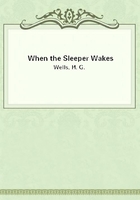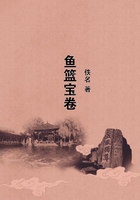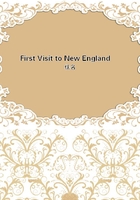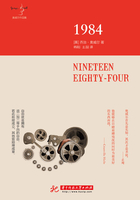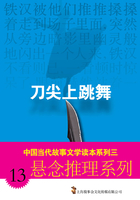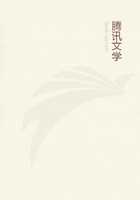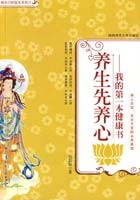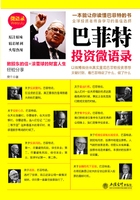The first questions put to Mme Lacoste were with regard to her marriage and her relations with her husband.She admitted, incidentally, having begun to receive a young man some six weeks after her husband's death, but she had not known him before marriage.Meilhan had carried no letters between them.She had married Lacoste of her own free will.Lacoste had not asked any attentions from her that were not ordinarily sought by a husband, and her care of him had been spontaneous.It wastrue he was jealous, but he had not formally forbidden her pleasures.She had renounced them, knowing he was easily upset.It was true that she had seldom gone out, but she had never wanted to.Lacoste was no more avaricious than most, and it was untrue that he had denied her any necessaries.
Taken to the events of the fair day, Tuesday, the 16th of May, Mme Lacoste maintained that her husband, on his return, complained only of a headache.He had gone to bed early, but he usually did.That night he slept in the same alcove as herself, but next night they separated.In spite of the contrary evidence of witnesses, of which the President reminded her, Mme Lacoste firmly maintained that it was not until the Wednesday- Thursday night that Lacoste started to vomit.It was not until that night that she began to attend to him.She had given him lemonade, washed him, and so on.
The President was saying that nobody had been allowed near him, and that a doctor was not called, when the accused broke in with a lively denial.Anybody who wanted to could see him, and a doctor was called.This was towards the last, the President pointed out.Mme Lacoste's advocate intervened here, saying that it was the husband who did not wish a doctor called, for reasons of his own.The President begged to be allowed to hear the accused's own answers.He pointed out that the ministrations of the accused had effected no betterment, but that the illness had rapidly got worse.The delay in calling a doctor seemed to lend a strange significance to the events.
Mme Lacoste answered in lively fashion, accenting her phrases with the use of her hands: But, monsieur, you do not take into account that it was not until the night of Wednesday and the Thursday that my husband began to vomit, and that it was two days after that he--he succumbed.''
The President said a way remained of fixing the dates and clearing up the point.He had a letter written by M.Lacoste to the doctor in which he himself explained the state of his illness.It was pointed out to him that the letter had been written by Mme Lacoste at her husband's dictation.
The letter was dated the 19th (Friday).It was directed to M.Boubee, doctor of medicine, in Vic-Fezensac.Perhaps it would be better to give itin the original language.It is something frank in detail:
Depuis quelque temps j'avais perdu l'appetit et m'endormais de suite quand j'etais assis.Mercredi il me vint un secours de nature par un vomissement extraordinaire.Ces vomissements m'ont dure pendant un jour et une nuit; je ne rendais que de la bile.La nuit passee, je n'en ai pas rendu; dans ce moment, j'en rends encore.Vous sentez combien ces efforts reiteres m'ont fatigue; ces grands efforts m'ont fait partir de la bile par en bas; je vous demanderai, monsieur, si vous ne trouveriez pas a propos que je prisse une medecine d'huile de ricin ou autre, celle que vous jugerez a propos.Je vous demanderai aussi si je pourrais prendre quelques bains.
LACOSTE PHILIBERT
Je rends beaucoup de vents par en bas.Pour la boisson, je ne bois que de l'eau chaude et de l'eau sucree.(Il n'y a pas eu de fievre encore.)The Procureur du Roi maintained that this letter showed the invalid had already been taken with vomiting before it was considered necessary to call in a doctor.But Mme Lacoste's advocate pointed out that the letter was written by her, when she had overcome Lacoste's distaste for doctors.
The President made much of the fact that Mme Lacoste had undertaken even the lowliest of the attentions necessary in a sick-room, when other, more mercenary, hands could have been engaged in them.The accusation from this was that she did these things from a desire to destroy incriminating evidences.Mme Lacoste replied that she had done everything out of affection for her husband.
Asked by the court why she had not thought to give Dr Boubee any explanations of the illness, she replied that she knew her husband was always ill, but that he hid his maladies and was ashamed of them.He had, it appeared, hernias, tetters, and other maladies besides.It was easy for her to gather as much, in spite of the mystery Lacoste made of them; she had seen him rubbing his limbs at times with medicaments, and at others she had seen him taking medicines internally.He was always vexed when she found him at it.She did not know what doctor prescribed the medicaments, nor the pharmacist who supplied them.Herhusband thought he knew more than the doctors, and usually dealt with quacks.
Mme Lacoste was questioned regarding her husband's will, and on his longing to have an heir of his own blood.She knew of the will, but did not hear any word of his desire to alter it until after his death.With regard to Lacoste's attempts to seduce the servants, she declared this was a vague affair, and she had found the first girl in question a place elsewhere.
Her letter to the Procureur du Roi demanding an exhumation and justice against her slanderers was read.Then a second one, in which she excused her absence, saying that she would give herself up for judgment at the right time, and begged him to add her letter to the papers of the process.
The President then returned to the question of her husband's attempts to seduce the servants.She denied that this was the cause of quarrels.There had been no quarrels.She did not know that her husband was complaining outside about her.
She denied all knowledge of the arsenic found in Lacoste's body, but suggested that it might have come from one or other of the medicines he took.


